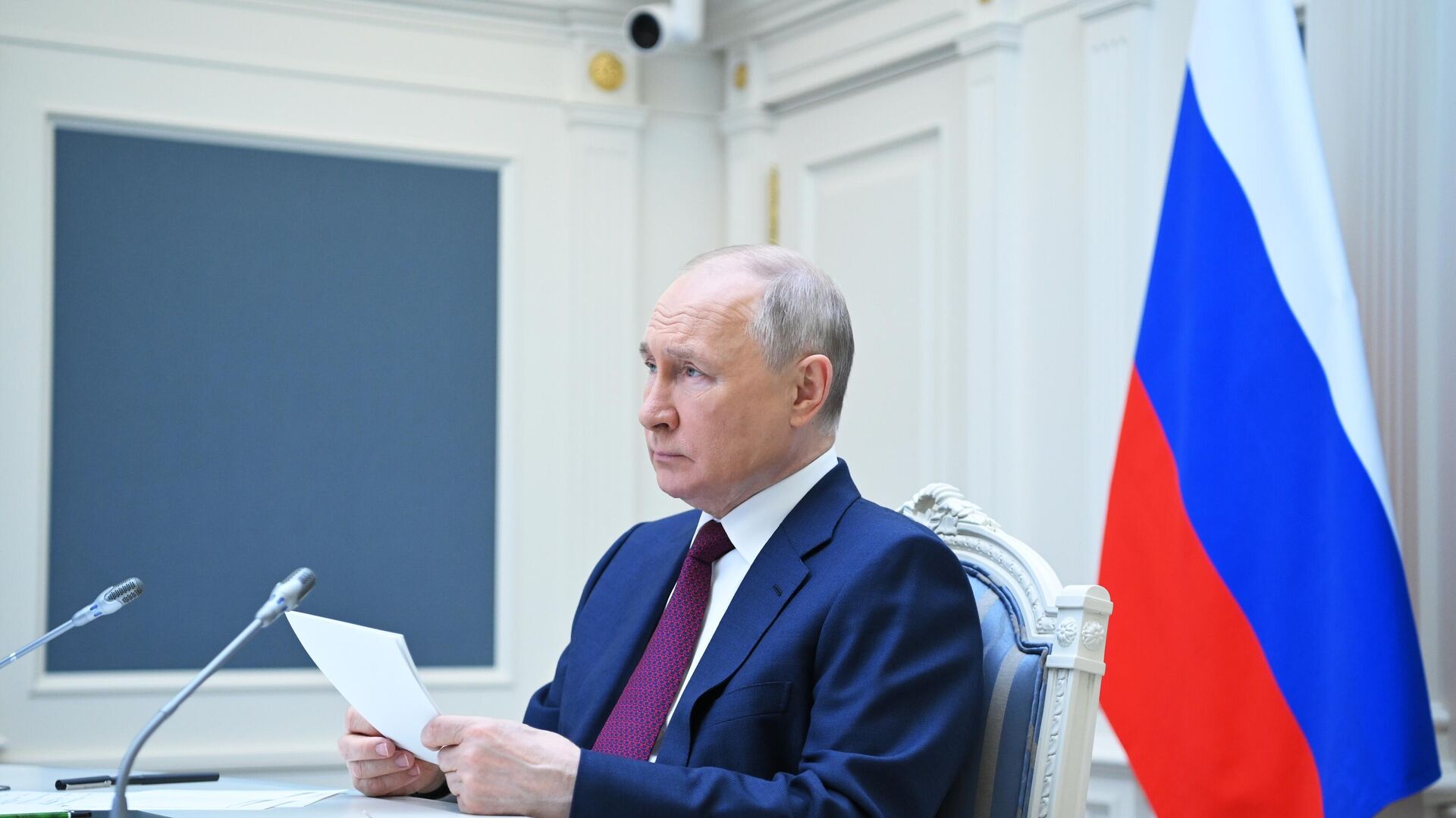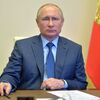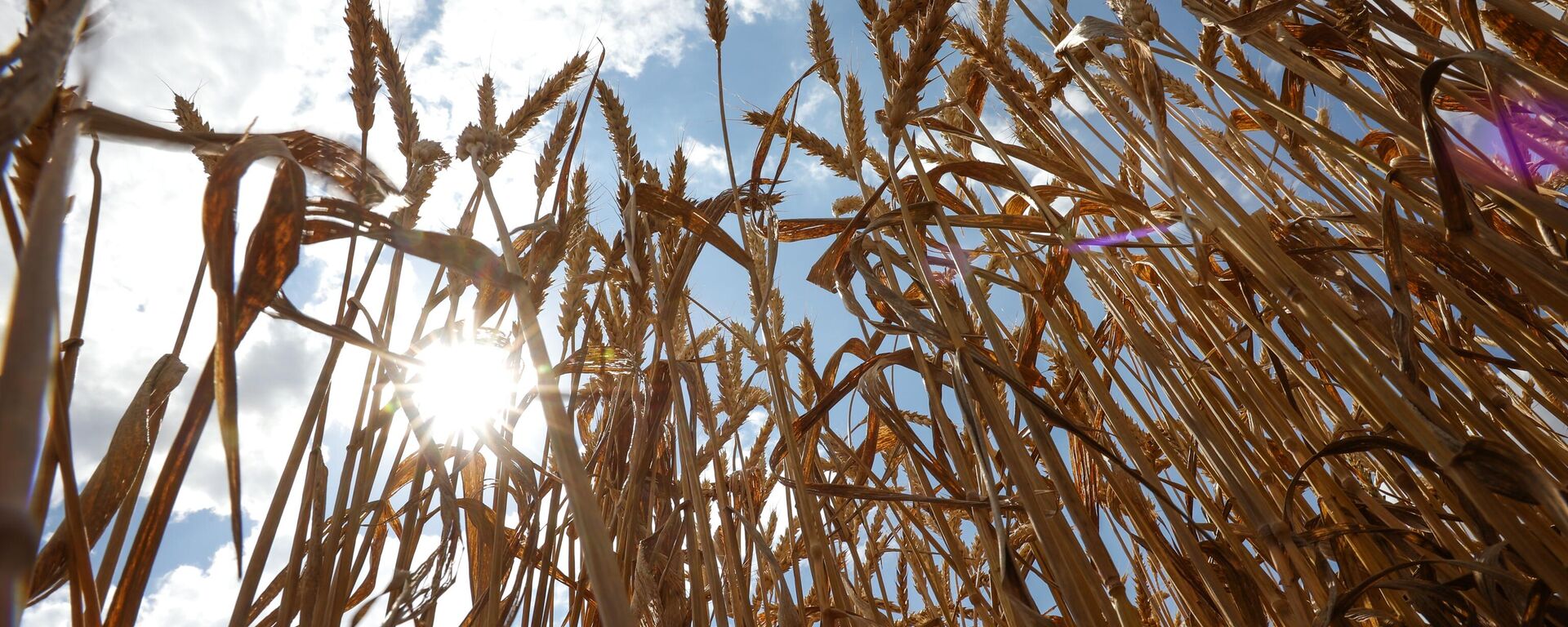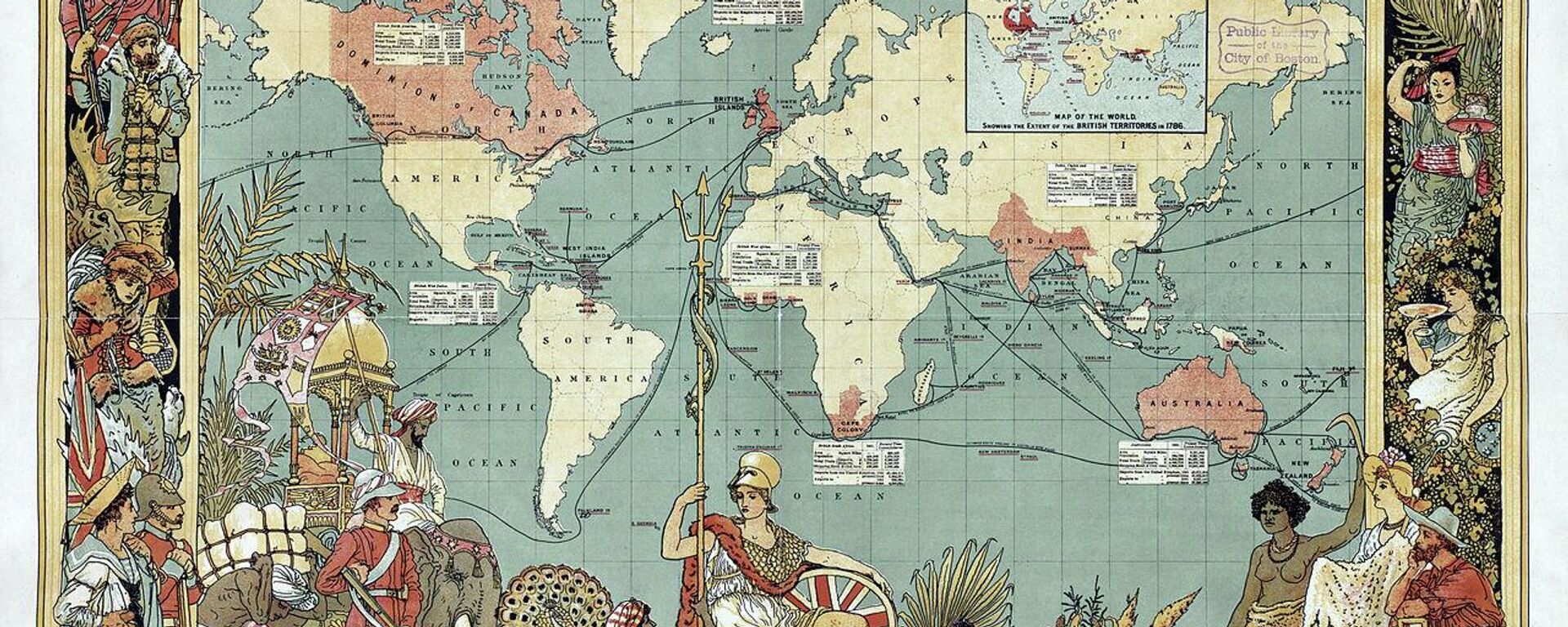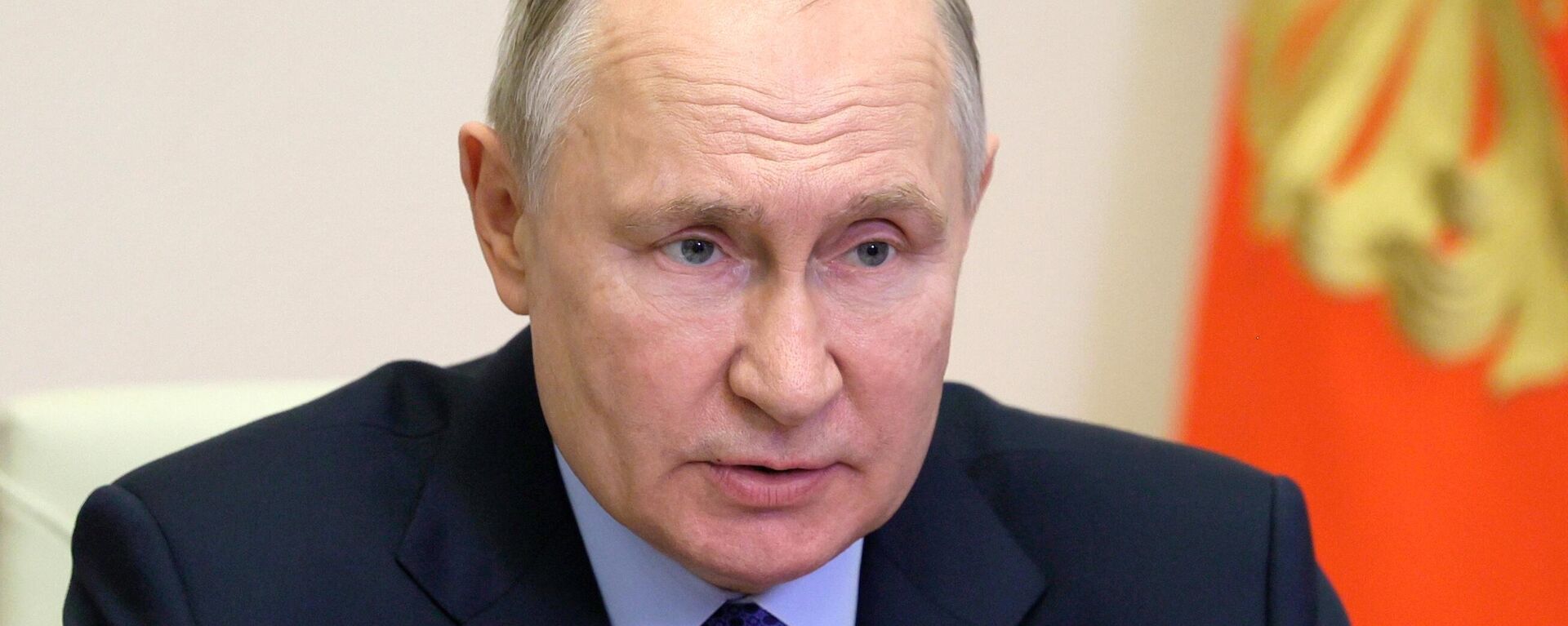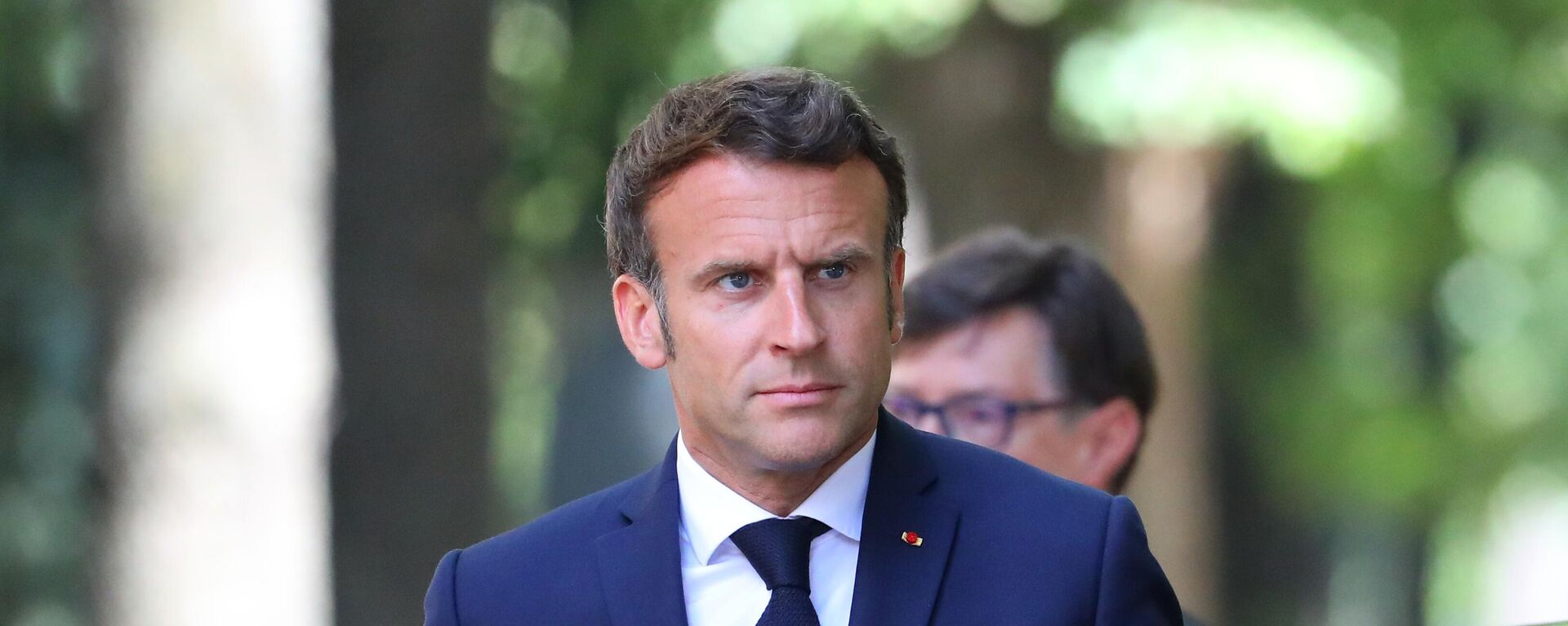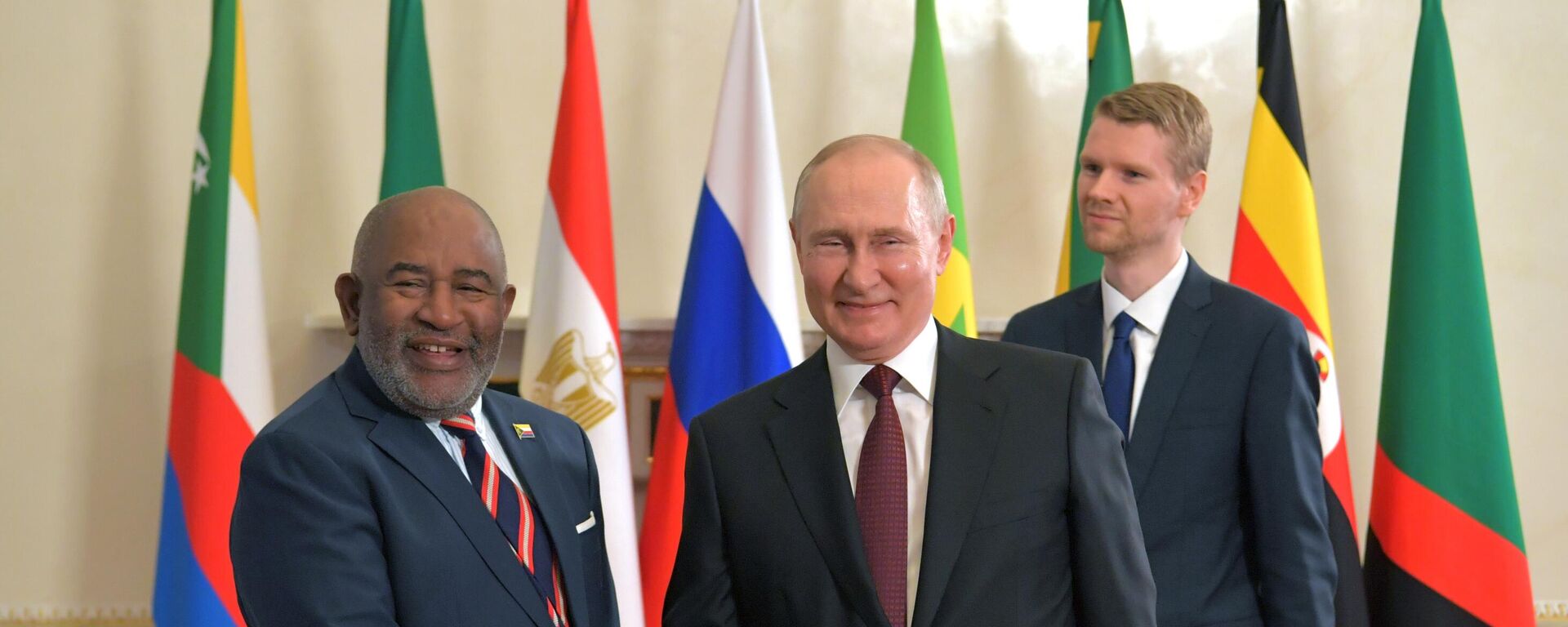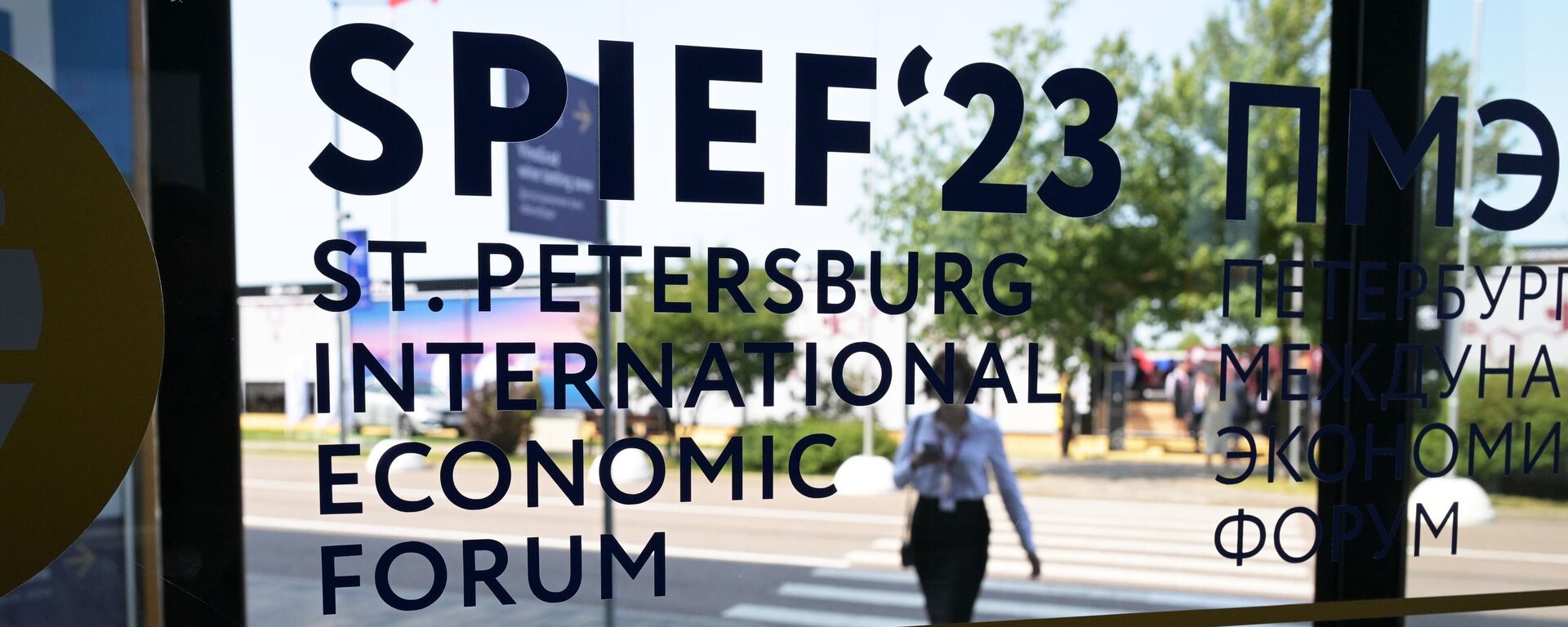https://sputnikglobe.com/20230724/putin-pens-article-on-eve-of-russia-africa-summit-full-text--1112102579.html
Putin Pens Article on Eve of Russia-Africa Summit: Full Text
Putin Pens Article on Eve of Russia-Africa Summit: Full Text
Sputnik International
Putin has penned an article on the eve of the Russia-Africa summit.
2023-07-24T07:38+0000
2023-07-24T07:38+0000
2023-07-24T07:38+0000
world
russia
vladimir putin
summit
https://cdn1.img.sputnikglobe.com/img/07e7/07/04/1111654176_0:0:3078:1731_1920x0_80_0_0_3a961939d34b6425c07c01c2243e539a.jpg
On the eve of these large-scale representative events which will bring together heads of state and government, entrepreneurs, academia and public figures, I would like to share my vision of the development of Russia-Africa relations with the readers of the leading media on the African continent, outlining priority cooperation areas for the coming decades of the 21st century.The partnership relations between our country and Africa have strong, deep roots and have always been distinguished by stability, trust and goodwill. We have consistently supported African peoples in their struggle for liberation from colonial oppression. We have provided assistance in developing statehood, strengthening their sovereignty and defense capability. Much has been done to create sustainable foundations for national economies. By the mid-1980s, with the participation of our specialists, over 330 large infrastructure and industrial facilities have been built in Africa, such as power plants, irrigation systems, industrial and agricultural enterprises, which are successfully operating to this day, and continue to make a significant contribution to the continent’s economic development. Tens of thousands of African doctors, technical specialists, engineers, officers and teachers have received education in Russia.We highly value the honestly-gained capital of friendship and cooperation, traditions of trust and mutual support that Russia and African countries share. We are brought together by a common desire to shape a system of relations based on the priority of international law, respect for national interests, indivisibility of security, and recognition of the central coordinating role of the United Nations.Russia welcomes the rising international authority of individual states as well as Africa as a whole, their desire to make their voices strongly heard and to take the continent's problems into their own hands. We have always supported the constructive initiatives of our partners. We stand for granting African countries their rightful place in the structures that determine the world’s fate, including the UN Security Council and the G20, as well as for reforming the global financial and trade institutions in a way that meets their interests.Regrettably, we see that the situation in the world today is far from stable. The long-standing conflicts that exist in nearly every region are deepening, and new threats and challenges are emerging. And Africa feels the burden of global challenges like no other part of the world. In such a challenging environment, we look forward to working with our African partners to shape a non-discriminatory agenda for cooperation. The strategic areas of our interaction are set by the decisions of the first Russia-Africa Summit held in Sochi in late October 2019. The Russia-Africa Partnership Forum was established for their effective implementation. We have set up bilateral intergovernmental commissions for trade, economic, scientific and technological cooperation with many countries of the continent, and the network of Russian embassies and trade missions in Africa will be expanded. Further instruments are being actively developed to better structure economic relations and make them more dynamic.I would like to note with satisfaction that Russia’s trade turnover with the African countries increased in 2022 and reached almost 18 billion US dollars. However, we are all well aware that the potential of our trade and economic partnership is much higher. Russian companies are interested in working more actively on the continent in the sphere of high technologies and geological exploration, in the fuel and energy complex, including nuclear power, in the chemical industry, mining and transport engineering, agriculture and fishery. The changes taking place in the world require the search for solutions related to the establishment of new transport and logistical chains, the formation of a monetary and financial system, and mechanisms of mutual settlements that are safe and free from unfavorable external impacts.We understand the importance of uninterrupted food supplies for the socio-economic development and political stability of the African states. On this basis, we have always paid great attention to issues related to the supply of wheat, barley, maize and other crops to African countries. We have done so both on a contractual basis and free of charge as humanitarian aid, including through the United Nations Food Program. Thus, in 2022, Russia exported 11.5 million tons of grain to Africa, and almost 10 million tons more were delivered in the first half of 2023 – despite the sanctions imposed on our exports, which severely hamper the supply of Russian food products to developing countries, complicating transport logistics, insurance arrangements and bank payments.Many have probably heard of the so-called “grain deal,” whose initial purpose was to ensure global food security, reduce the threat of hunger and help the poorest countries of Africa, Asia and Latin America – the reason why Russia undertook the obligation to facilitate its implementation in the first place. This “deal,” however, while it was publicly advertised by the West as a gesture of goodwill that benefited Africa, has in fact been shamelessly used solely for the enrichment of large US and European businesses that exported and resold grain from Ukraine.Judge for yourselves: in almost a year, a total of 32.8 million tons of supplies were exported from Ukraine under the “deal,” with over 70 percent of the exports ending up in high- and upper-middle-income countries, including in the European Union, whereas such countries as Ethiopia, Sudan and Somalia, as well as Yemen and Afghanistan, received less than 3 percent of the supplies, i.e. less than one million tons.In the meantime, none of the “deal” provisions relating to the exemption from sanctions of Russian grain and fertilizer exports to world markets, were fulfilled. Moreover, barriers have been mounted even to our attempts to supply free of charge mineral fertilizers to the poorest countries in need. Of 262,000 tons of goods blocked in European ports, only two shipments were delivered – one of 20,000 tons to Malawi and one of 34,000 tons to Kenya. The rest is still unscrupulously held by the Europeans. And this is a purely humanitarian initiative we are talking about, which should be exempt from any sanctions as such.Considering all these facts, there is no longer any use in continuing the “grain deal” as it has failed to serve its original humanitarian purpose. We argued against further extending the “deal,” which terminated as of July 18.I want to give assurances that our country is capable of replacing the Ukrainian grain both on a commercial and free-of-charge basis, especially as we expect another record harvest this year.Notwithstanding the sanctions, Russia will continue its energetic efforts to provide supplies of grain, food products, fertilizers and other goods to Africa. We highly value and will further develop the full spectrum of economic ties with Africa – with individual states as well as regional integration associations and, naturally, with the African Union. We welcome this organization's strategic course towards further economic integration and the formation of the African Continental Free Trade Area. We are ready to build pragmatic, mutually beneficial relations, including within the framework of the Eurasian Economic Union. We are also willing to step up cooperation with other regional integration organizations on the continent.In keeping with the existing tradition, we intend to continue providing assistance to African states in building their national human resource capacity. There are currently about 35 thousand students from the continent in Russia, more than 6,000 of them receive Russian government scholarships. Each year we increase the number of scholarships, promote paid higher education options and facilitate inter-university ties, which have gained significant momentum in recent times.Bringing humanitarian, cultural, sports and mass media cooperation to a whole new level would serve our common interests. I would like to seize this opportunity to invite our young African friends to the World Youth Festival, which will take place in Sochi, Russia, in March 2024. This large-scale international forum will bring together more than 20,000 participants from more than 180 countries for an informal, friendly and open dialogue that is free from ideological and political barriers, racial and religious prejudice and would consolidate the young generation around the ideals of lasting and durable peace, prosperity and creative spirit.In conclusion, I would like to reiterate that we attach great importance to the upcoming second Russia–Africa Summit. We expect that the Summit would adopt a comprehensive Declaration, a number of joint statements and approve the Russia – Africa Partnership Forum Action Plan to 2026. We are working to prepare an impressive package of intergovernmental and inter‑agency agreements and memoranda with individual states as well as regional associations of the continent.I am looking forward to welcoming the African leaders in St. Petersburg and stand committed to a fruitful, constructive dialogue. I firmly believe that the decisions adopted at the Summit and Forum, coupled with continuous diversified joint work will contribute to further development of Russian‑African strategic partnership for the benefit of our countries and peoples.
https://sputnikglobe.com/20230724/putin-says-grain-deal-used-to-enrich-us-europe-lost-its-meaning-1112099137.html
https://sputnikglobe.com/20220720/west-came-to-global-preeminence-through-robbery-of-other-peoples-has-no-model-of-the-future-putin-1097617120.html
https://sputnikglobe.com/20230723/russia-to-continue-to-supply-grain-food-fertilizers-to-africa---putin-1112098874.html
https://sputnikglobe.com/20230723/1112090534.html
https://sputnikglobe.com/20230617/russian-president-putin-hold-talks-with-african-leaders-1111254054.html
https://sputnikglobe.com/20230616/pepe-escobar-russias-new-roadmap-for-multipolar-world-1111204612.html
russia
Sputnik International
feedback@sputniknews.com
+74956456601
MIA „Rossiya Segodnya“
2023
Vladimir Putin
https://cdn1.img.sputnikglobe.com/img/107902/99/1079029906_616:-1:2664:2048_100x100_80_0_0_61f19bbc9f95b17dd8b522d3696fcd70.jpg
Vladimir Putin
https://cdn1.img.sputnikglobe.com/img/107902/99/1079029906_616:-1:2664:2048_100x100_80_0_0_61f19bbc9f95b17dd8b522d3696fcd70.jpg
News
en_EN
Sputnik International
feedback@sputniknews.com
+74956456601
MIA „Rossiya Segodnya“
Sputnik International
feedback@sputniknews.com
+74956456601
MIA „Rossiya Segodnya“
Vladimir Putin
https://cdn1.img.sputnikglobe.com/img/107902/99/1079029906_616:-1:2664:2048_100x100_80_0_0_61f19bbc9f95b17dd8b522d3696fcd70.jpg
putin's article, putin writes article, putin's article about russia-africa cooperation, putin's article about grain deal
putin's article, putin writes article, putin's article about russia-africa cooperation, putin's article about grain deal
Putin Pens Article on Eve of Russia-Africa Summit: Full Text
Vladimir Putin
President of Russia
On July 27–28, St Petersburg will host the second Russia-Africa Summit and Russia-Africa Economic and Humanitarian Forum. Ahead of the summit, Russia's president penned an article outlining his vision on the prospects for cooperation between Russia and the African continent.
On the eve of these large-scale representative events which will bring together heads of state and government, entrepreneurs, academia and public figures, I would like to share my vision of the development of Russia-Africa relations with the readers of the leading media on the African continent, outlining priority cooperation areas for the coming decades of the 21st century.
The partnership relations between our country and Africa have strong, deep roots and have always been distinguished by stability, trust and goodwill. We have
consistently supported African peoples in their struggle for liberation from colonial oppression. We have provided assistance in developing statehood, strengthening their sovereignty and defense capability. Much has been done to create sustainable foundations for national economies. By the mid-1980s, with the participation of our specialists, over 330 large infrastructure and industrial facilities have been built in Africa, such as power plants, irrigation systems, industrial and agricultural enterprises, which are successfully operating to this day, and continue to make a significant contribution to the continent’s economic development. Tens of thousands of African doctors, technical specialists, engineers, officers and teachers have received education in Russia.
I would like to specifically mention the traditionally close cooperation on the world stage, the firm and consistent advocacy rendered by the USSR and then Russia to African countries at international fora. We have always strictly adhered to the “African solutions to African problems” principle, standing in solidarity with Africans in their struggle for self-determination, justice and their legitimate rights. We have never tried to impose on partners our own ideas about the internal structure, forms and methods of management, development goals and ways to achieve them. Unchanged remains our respect for the sovereignty of African states, their traditions and values, their desire to independently determine their own destiny and freely build relationships with partners.
We highly value the honestly-gained capital of friendship and cooperation, traditions of trust and mutual support that Russia and African countries share. We are brought together by a common desire to shape a system of relations based on the priority of international law, respect for national interests, indivisibility of security, and recognition of the central coordinating role of the United Nations.
Today, the constructive, trustful, forward-looking partnership between Russia and Africa is especially significant and important. Major centers of economic and political power and influence are emerging in the world, which are asserting themselves more and more insistently, demanding that they be reckoned with. We are sure that a new multipolar world order, the contours of which are already seen, will be more just and democratic. And there is no doubt that Africa, along with Asia, the Middle East and Latin America, will take its worthy place in it and finally free itself from the bitter legacy of colonialism and neo-colonialism, rejecting its modern practices.
Russia welcomes the rising international authority of individual states as well as Africa as a whole, their desire to make their voices strongly heard and to take the continent's problems into their own hands. We have always supported the constructive initiatives of our partners. We stand for granting African countries their rightful place in the structures that determine the world’s fate,
including the UN Security Council and the G20, as well as for reforming the global financial and trade institutions in a way that meets their interests.
Regrettably, we see that the situation in the world today is far from stable. The long-standing conflicts that exist in nearly every region are deepening, and new threats and challenges are emerging. And Africa feels the burden of global challenges like no other part of the world. In such a challenging environment, we look forward to working with our African partners to shape a non-discriminatory agenda for cooperation. The strategic areas of our interaction are set by the decisions of the
first Russia-Africa Summit held in Sochi in late October 2019. The Russia-Africa Partnership Forum was established for their effective implementation. We have set up bilateral intergovernmental commissions for trade, economic, scientific and technological cooperation with many countries of the continent, and the network of Russian embassies and trade missions in Africa will be expanded. Further instruments are being actively developed to better structure economic relations and make them more dynamic.
I would like to note with satisfaction that Russia’s trade turnover with the African countries increased in 2022 and reached almost 18 billion US dollars. However, we are all well aware that the potential of our trade and economic partnership is much higher. Russian companies are interested in working more actively on the continent in the sphere of high technologies and geological exploration, in the fuel and energy complex, including nuclear power, in the chemical industry, mining and transport engineering, agriculture and fishery. The changes taking place in the world require the search for solutions related to the establishment of new transport and logistical chains, the formation of a monetary and financial system, and mechanisms of mutual settlements that are safe and free from unfavorable external impacts.
We understand the importance of
uninterrupted food supplies for the socio-economic development and political stability of the African states. On this basis, we have always paid great attention to issues related to the supply of wheat, barley, maize and other crops to African countries. We have done so both on a contractual basis and free of charge as humanitarian aid, including through the United Nations Food Program. Thus, in 2022, Russia exported 11.5 million tons of grain to Africa, and almost 10 million tons more were delivered in the first half of 2023 – despite the sanctions imposed on our exports, which severely hamper the supply of Russian food products to developing countries, complicating transport logistics, insurance arrangements and bank payments.
Many have probably heard of the so-called “grain deal,” whose initial purpose was to ensure global food security, reduce the threat of hunger and help the poorest countries of Africa, Asia and Latin America – the reason why Russia undertook the obligation to facilitate its implementation in the first place. This “deal,” however, while it was publicly advertised by the West as a gesture of goodwill that benefited Africa, has in fact been shamelessly used solely for the enrichment of large US and European businesses that exported and resold grain from Ukraine.
Judge for yourselves: in almost a year, a total of 32.8 million tons of supplies were exported from Ukraine under the “deal,” with over 70 percent of the exports ending up in high- and upper-middle-income countries, including in the European Union, whereas such countries as Ethiopia, Sudan and Somalia, as well as Yemen and Afghanistan, received less than 3 percent of the supplies, i.e. less than one million tons.
In the meantime, none of the “deal” provisions relating to the exemption from sanctions of Russian grain and fertilizer exports to world markets, were fulfilled. Moreover, barriers have been mounted even to our attempts to supply free of charge mineral fertilizers to the poorest countries in need. Of 262,000 tons of goods blocked in European ports, only two shipments were delivered – one of 20,000 tons to Malawi and one of 34,000 tons to Kenya. The rest is still unscrupulously held by the Europeans. And this is a purely humanitarian initiative we are talking about, which should be exempt from any sanctions as such.
Considering all these facts, there is no longer any use in continuing the “grain deal” as it has failed to serve its original humanitarian purpose. We argued against further extending the “deal,” which terminated as of July 18.
I want to give assurances that our country is capable of replacing the Ukrainian grain both on a commercial and free-of-charge basis, especially as we expect another record harvest this year.
Notwithstanding the sanctions, Russia will continue its energetic efforts to provide supplies of grain, food products, fertilizers and other goods to Africa. We highly value and will further develop the full spectrum of economic ties with Africa – with individual states as well as regional integration associations and, naturally, with the African Union. We welcome this organization's strategic course towards further economic integration and the formation of the African Continental Free Trade Area. We are ready to build pragmatic, mutually beneficial relations, including within the framework of the Eurasian Economic Union. We are also willing to step up cooperation with other regional integration organizations on the continent.
In keeping with the existing tradition, we intend to continue providing assistance to African states in building their national human resource capacity. There are currently about 35 thousand
students from the continent in Russia, more than 6,000 of them receive Russian government scholarships. Each year we increase the number of scholarships, promote paid higher education options and facilitate inter-university ties, which have gained significant momentum in recent times.
Bringing humanitarian, cultural, sports and mass media cooperation to a whole new level would serve our common interests. I would like to seize this opportunity to invite our young African friends to the World Youth Festival, which will take place in Sochi, Russia, in March 2024. This large-scale international forum will bring together more than 20,000 participants from more than 180 countries for an informal, friendly and open dialogue that is free from ideological and political barriers, racial and religious prejudice and would consolidate the young generation around the ideals of lasting and durable peace, prosperity and creative spirit.
In conclusion, I would like to reiterate that we attach great importance to the upcoming second Russia–Africa Summit. We expect that the Summit would adopt a comprehensive Declaration, a number of joint statements and approve the Russia – Africa Partnership Forum Action Plan to 2026. We are working to prepare an impressive package of intergovernmental and inter‑agency agreements and memoranda with individual states as well as regional associations of the continent.
I am looking forward to welcoming the African leaders in St. Petersburg and stand committed to a fruitful, constructive dialogue. I firmly believe that the decisions adopted at the Summit and Forum, coupled with continuous diversified joint work will contribute to further development of Russian‑African strategic partnership for the benefit of our countries and peoples.
